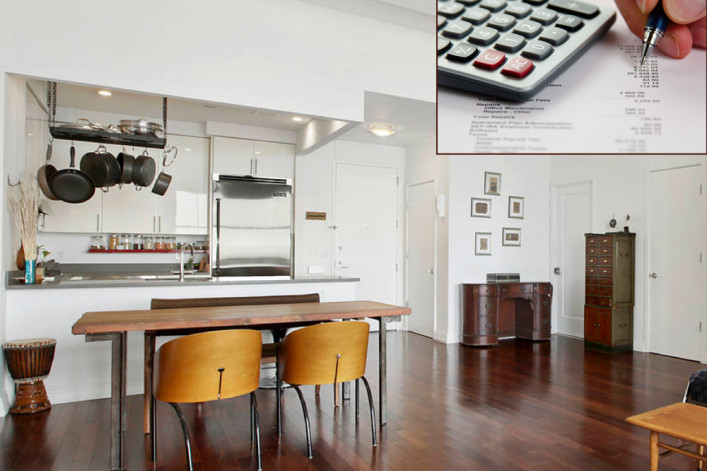Ask an Expert: "How much should maintenance fees affect the price of an apartment?"

Q. Is there a formula or rule-of-thumb for adjusting the sales price of an apartment to offset high monthly maintenance fees or common charges?
A. When a condo's common charges (or, in a co-op, the monthly maintenance charges, which include property taxes) are higher than average, you'll need both a calculator and a grasp of psychology to figure the right price adjustment, say our experts.
Begin by calculating the amount by which the apartment's monthly charges exceed the average.
In Manhattan, average monthly fees in a co-op are $1.68 per square foot, says New York City real estate appraiser Jonathan Miller of Miller Samuel. (In a condo, add common charges plus property taxes.)
"That means that a 1,000 square foot apartment might be expected to have a monthly maintenance of $1,680," he says. "However, this is just an average and apartments vary greatly by their amenities, property types and financial condition."
Agrees real estate broker Gordon Roberts of Warburg Realty, "I’d look at recent sales in the building in relation to comparable sales in the neighborhood and see if there was any discernable differential....There may be other factors, such as condition, views, or architectural qualities that could compensate for a higher maintenance, so it needs to be judged on a case-by-case basis."
Say that you determine that the monthly charges are about $500 higher than average. Now calculate the amount of money that could be financed with a monthly payment of $500 and apply that to the purchase price, says real estate broker Deanna Kory of Corcoran.
For example, at today's mortgage rates of around 4% for a 30-year-fixed loan, a $500 monthly payment would enable you to borrow around $100,000. Looked at this way, says Kory, the apartment should cost $100,000 less than a comparable unit with an average-sized maintenance.
In addition, says Kory, "it's important to note that the formula above does not account for potential tax deductible portion of each. Mortgage payments have a much higher deductibility percentage in the initial years. And while maintenance charges in a co-op include property taxes and mortgage interest for the underlying mortgage payment, the tax deductible portion is usually between 30-50%."
Trouble at home? Get your NYC apartment-dweller questions answered by an expert! Send us your questions.
See all Ask an Expert.
Related:


























